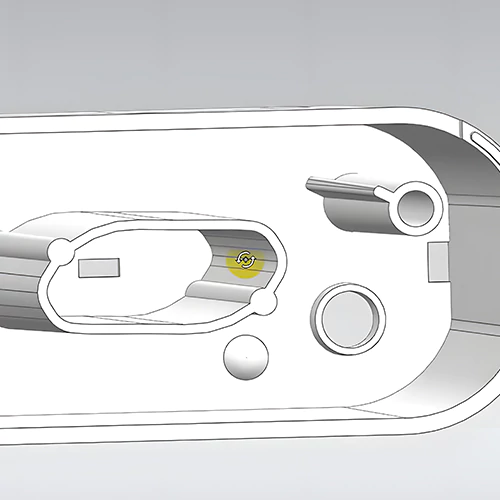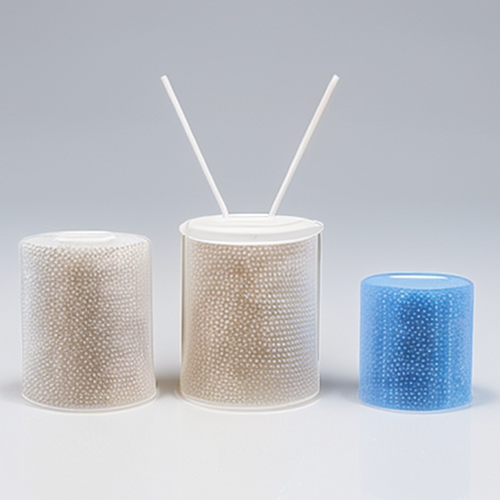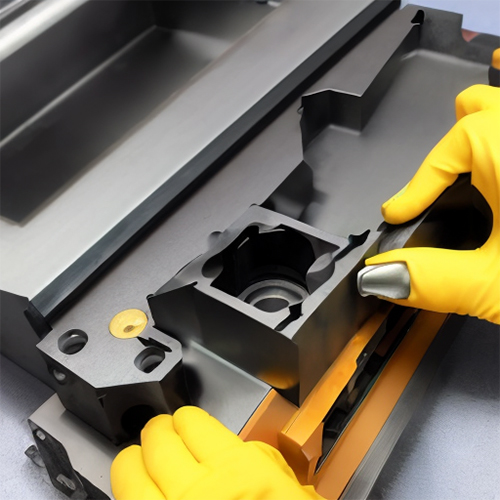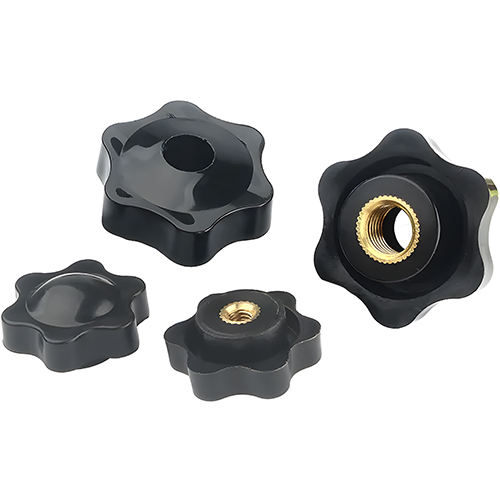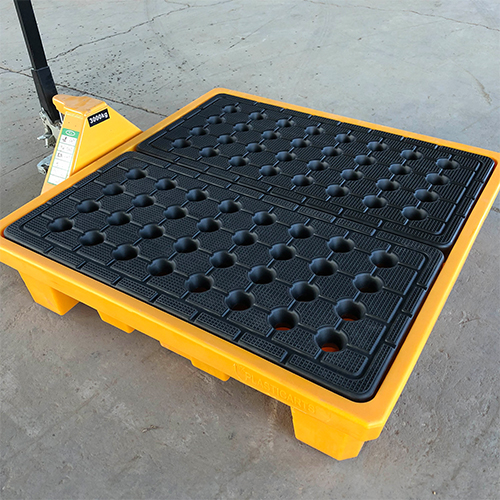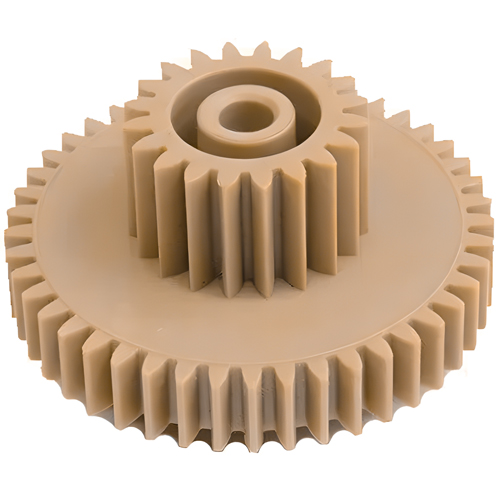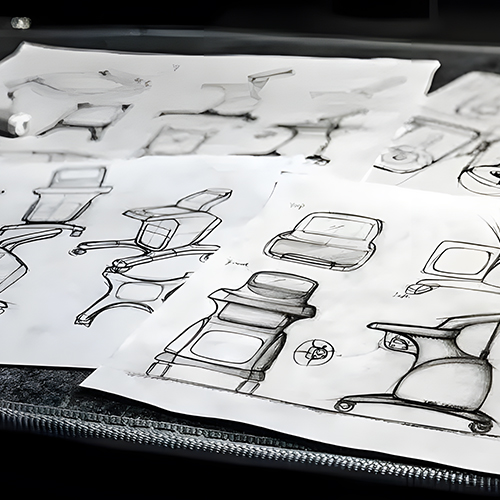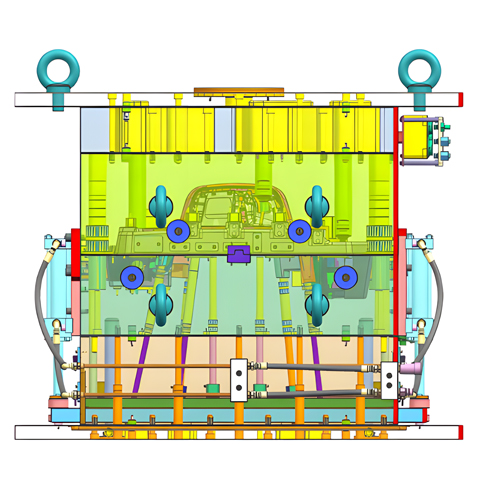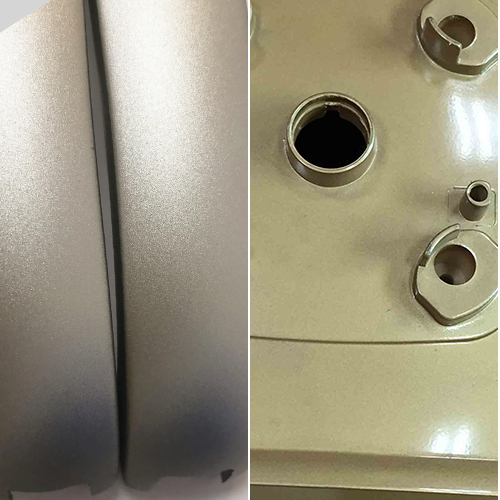PEEK, a thermoplastic polymer, is versatile in various applications, from medical implants to electric cable insulation. This remarkable material comes in various forms, including PEEK Virgin, PEEK GF30, PEEK CF30, and Bearing Grade PEEK.
PEEK’s exceptional mechanical properties and resistance to corrosive substances set it apart, making it highly sought after across industries. With its elevated melting point, it’s a prime candidate for subtractive processes like PEEK CNC milling.
But, before we delve into precision PEEK machining, exploring its properties, applications, considerations, and the difference between medical-grade and industrial-grade PEEK, do read our detailed machining part guide.
Limitations of PEEK Machining
PEEK manufacturing and PEEK fabrication, though a reliable substitute for certain metals like steel and aluminum, comes with some noteworthy limitations:
Special Handling to Minimize Stress and Heat-Related Cracks
PEEK plastic machining requires meticulous handling to minimize internal stresses and the risk of heat-related cracks. Careful tool selection, toolpath optimization, and cooling techniques are essential to mitigate these issues.
Annealing Required
Annealing, a post-machining heat treatment process, is often necessary to relieve residual stresses in machined PEEK components. This ensures dimensional stability and minimizes the potential for PEEK machined parts distortion.
Limited Heat Dissipation
PEEK does not dissipate heat effectively during machining. Controlling temperatures using efficient cooling methods is critical to prevent overheating, tool wear, and surface defects.
Susceptibility to Cracking with Deep Drilling
Deep drilling operations can risk cracking in PEEK components. Careful monitoring, optimal tool geometry, and proper chip evacuation techniques are vital to avoid such issues.
Advantages of Machining PEEK
Precision PEEK Machining offers numerous advantages stemming from both the inherent properties of the material and the capabilities of PEEK CNC machining:
Material Advantages of Machining PEEK
- Excellent Chemical Resistance: PEEK exhibits outstanding resistance to various chemicals, making it ideal for applications in corrosive environments.
- Very Low Moisture Absorption: PEEK has minimal moisture absorption properties, ensuring dimensional stability in high-humidity conditions.
- Wear and Abrasion Resistance: PEEK’s inherent toughness and wear resistance make it ideal for components subjected to friction and abrasion.
- Unaffected by Continuous Hot Water/Steam Exposure: PEEK maintains its structural integrity and mechanical properties even when exposed to continuous hot water or steam, making it suitable for demanding applications.
- Biocompatible Grades Available: Some PEEK grades are biocompatible, making them suitable for medical and healthcare applications.
- Resistant to Biodegradation: PEEK is inherently resistant to biodegradation, ensuring the long-term durability of components in various environments.
Process Advantages of Machining PEEK
- High Accuracy: PEEK CNC machining offers exceptional precision, ensuring that PEEK components meet tight dimensional requirements.
- High Repeatability: CNC machines deliver consistent and repeatable results, which is crucial for applications demanding precision and consistency.
- Tight Tolerances: PEEK’s dimensional stability and CNC machining capabilities allow for achieving tight tolerances required in various industries.
- Relatively High Melting Point: PEEK’s relatively high melting point allows for faster feeds and speeds during machining, increasing productivity while maintaining material integrity.
Machining Industrial Grade vs Medical Grade PEEK: How is it Different?
When it comes to machining PEEK, it’s essential to choose the right type based on your specific production needs. There are primarily two kinds: industrial-grade PEEK and medical-grade PEEK, each tailored for distinct applications.
Industrial-Grade PEEK
- Strength and Durability: Industrial-grade PEEK is incredibly robust and known for its flame resistance and resistance to wear and tear. It can withstand abrasion and impact, making it suitable for demanding environments.
- Temperature Resilience: It retains its mechanical properties even at high temperatures, ensuring consistent performance in extreme conditions.
- Versatility: This type of PEEK finds applications in various industries such as aerospace, automotive, chemicals, electronics, petroleum, and the food and beverage sectors.
Medical-Grade PEEK
- Biocompatibility: Medical-grade PEEK is designed to be biocompatible, meeting ISO 10993 standards. It’s highly resistant to chemicals and can be sterilized, making it suitable for medical applications.
- Radiolucent Properties: This unique characteristic means it remains invisible under X-rays, MRIs, or CT scans, making it ideal for medical implants.
- Bone-Like Stiffness: Certain variations like PEEK Optima and Zeniva PEEK mimic the stiffness of human bone. They can be used for implants that remain in contact with bodily fluids or tissues indefinitely.
- Custom Medical Components: Medical-grade PEEK is also used in crafting custom medical components, such as articulating joints and spinal devices, showcasing its versatility in the medical field.
Machining PEEK: Essential Considerations
When machining PEEK, several critical considerations can significantly impact the outcome. One of the first decisions is working with industrial- or medical-grade PEEK.
Choosing Between Medical-Grade and Industrial-Grade PEEK Machining
Industrial-grade PEEK is known for its exceptional strength, flame resistance, abrasion resistance, and low coefficient of friction. It stays strong and works well even when it’s really hot, which is why people use it a lot in things like airplanes, oil and gas, chemicals, cars, electronics, and food and drinks.
On the other hand, medical-grade PEEK not only possesses all the qualities of industrial-grade PEEK but also offers biocompatibility per ISO 10993. It boasts high chemical resistance and can withstand sterilization processes. Moreover, medical-grade PEEK is radiolucent, which means it remains invisible under X-ray, MRI, or CT scans.
This feature is particularly advantageous for medical implants, such as PEEK Optima and Zeniva PEEK, which mimic bone stiffness and can remain in contact with blood or tissue indefinitely. Other variations of medical-grade PEEK are suitable for custom medical components like articulating joints and spinal devices.
Annealing PEEK
As mentioned, annealing PEEK is another crucial step in the precision PEEK machining process. Most PEEK arrives in the form of rods with varying diameters. Stress-relieving through annealing is essential before machining to reduce the risk of surface cracks and internal stresses caused by heat.
Annealing also increases crystallinity and allows control over dimensional changes. Intermediate annealing steps may be necessary for extended machining times to maintain tight tolerances and flatness.
Both industrial-grade and most medical-grade PEEK materials are machined in a similar manner, except for PEEK reinforced with carbon fiber. Silicon carbide cutting tools are suitable for natural PEEK, while diamond tools work well for PEEK reinforced with carbon fiber.
When working with medical-grade PEEK, it’s essential to preserve its biocompatibility. Dry PEEK plastic machining is the best practice; however, PEEK doesn’t dissipate heat like metals. In some cases, coolant may be necessary.
In such situations, air cooling is the preferred choice as it’s less likely to affect medical-grade PEEK’s biocompatibility. Any chips resulting from machining medical-grade PEEK can be reused for industrial applications.
Preventing Contamination
Preventing Contamination is a paramount concern, especially when machining polymer components for technically demanding industries like aerospace and medicine. Precision PEEK Machining adopts a rigorous approach by exclusively designing, heat-treating, and machining plastics. Any sub-manufactured metalwork is processed outside their facility to maintain the highest cleanliness and quality.
The Wide Application of PEEK in Various Industries
Thanks to its outstanding properties, PEEK plastic has extensive use in various industries, including medical implant production. Manufacturers particularly value the following properties during PEEK fabrication and manufacturing:
1. Impressive Chemical, Electrical, and Temperature Resistance:
PEEK material exhibits remarkable resistance to corrosive chemicals, on par with nickel steel. It maintains its non-corrosive chemical structure even when in contact with most metals, even at high temperatures. Under normal conditions, only concentrated sulphuric acid can dissolve this plastic.
Additionally, PEEK offers excellent electrical performance at high temperatures and frequencies. Its stable chemical structure allows it to function effectively under high levels of ionization radiation. Moreover, PEEK displays high resistance to gamma radiation, surpassing that of polystyrene, known for its radiation resistance.
This property makes it suitable for high-performance wiring, ensuring effective insulation. Furthermore, PEEK boasts durability and a high melting point, making it well-suited for precision PEEK machining at elevated temperatures without deformation.
2. High Workability and Consistent Performance, Even at Elevated Temperatures:
PEEK’s excellent workability during PEEK CNC milling and machining is attributable to its strong processing performance. Despite being a super high-temperature thermoplastic material, it is compatible with various material processing methods, including injection molding, extrusion molding, and melt spinning, thanks to its high-temperature workability and superior thermal decomposition properties.
Furthermore, PEEK is self-extinguishing during combustion, producing minimal or no toxic gas and smoke.
3. Exceptional Mechanical Properties, Creep Resistance, Wear, and Friction Resistance:
PEEK and other high-temperature thermoplastics boast high-impact strength and maintain their size even at elevated temperatures. They have a low linear expansion coefficient, ensuring good dimensional stability.
PEEK stands out for its exceptional fatigue and stress-retaining properties, making it highly suitable for applications exposed to significant pressure during machining. Moreover, PEEK offers excellent creep resistance, which can deform slowly over extended periods under stress. This property enables it to withstand high-pressure conditions effectively.
Additionally, PEEK exhibits outstanding wear resistance with a low coefficient of friction, ensuring it maintains excellent wear resistance under various physical conditions, including pressure, surface roughness, temperature, and speed.
4. Low Water Absorption and Resilience to Radiation:
PEEK’s low water absorption makes it ideal for machine or instrument components in wet environments. It retains its chemical structure and properties even in areas with pressurized hot water or steam.
Furthermore, PEEK machined parts can operate effectively under intense ionizing radiation. As mentioned, it displays superior resistance to gamma radiation compared to polystyrene. These properties make PEEK a versatile choice for various applications across industries.
Summing Up!
Looking for professionals for your next PEEK prototyping project? Our professional team at Prototool has you covered with advanced PEEK machining services using modern machining practices.
FAQs:
Is PEEK Hard to Machine?
Machining PEEK can indeed be a challenging task. This thermoplastic material demands specialized handling and a high level of expertise and experience. To achieve the best results, manufacturers must follow critical steps before, during, and after the machining process.
Can You EDM PEEK?
Yes, Electrical Discharge Machining (EDM) is a viable option for working with PEEK. Its unique properties make it well-suited for creating complex geometries, some of which may be impossible to achieve using other machining technologies. EDM offers a precise and effective method for shaping PEEK components to meet specific requirements.

